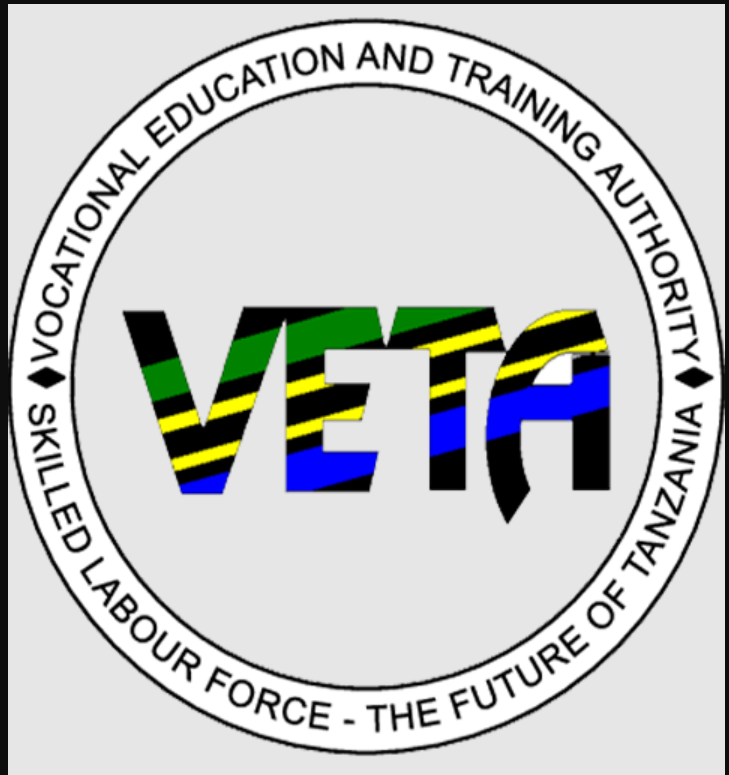
VETA Courses and Fees Structure; The Vocational Education and Training Authority (VETA) in Tanzania offers a range of vocational training programs aimed at equipping students with practical skills for the job market. This guide provides an overview of the courses and fees for 2024, as well as insights into the advantages of choosing VETA for your vocational education.
VETA is a government agency responsible for overseeing vocational education and training programs in Tanzania. It collaborates with various stakeholders, including private companies, industry experts, and community leaders, to ensure that its courses meet the current needs of the job market. VETA’s training programs are designed to provide students with both theoretical knowledge and practical skills necessary for success in various industries.
Why Choose VETA?
- Practical Focus: VETA courses emphasize hands-on learning, ensuring graduates are well-prepared for employment.
- Diverse Offerings: With a wide range of courses available, students can find programs that match their interests and career aspirations.
- Affordability: VETA courses are more affordable compared to traditional university programs, making quality education accessible to more people.
- Enhanced Employability: Graduates are highly sought after by employers due to their industry-relevant skills and practical experience.
VETA Courses and Fees Structure 2024
Course Offerings
VETA offers both basic and specialized courses across various fields. The duration and fees of these courses vary based on the complexity and level of the training.
Basic Courses and Fees
These courses are ideal for individuals seeking to learn the fundamentals of a particular skill or trade. They typically last from one week to six months.
| Course Name | Fee (TSH) |
|---|---|
| Basic Computer Application | 250,000 |
| Basic Driving Course | 225,000 |
| Basic Electronics | 300,000 |
| Basic Food and Beverage Services | 300,000 |
| Basic Gas Welding | 300,000 |
| Basic Housekeeping | 300,000 |
| Basic Sign Writing | 300,000 |
| Basic Tricycle Riding | 105,000 |
| Basic Arch Welding | 300,000 |
| Basic Motor Vehicle Driving (Day) | 220,000 |
| Basic Motor Vehicle Driving (Boarding) | 320,000 |
| Computer Application (Day) | 260,000 |
| Plumbing and Pipe Fittings (Day) | 260,000 |
| Masonry and Bricklaying (Day) | 260,000 |
| Carpentry and Joinery (Day) | 260,000 |
| Leather Goods (Day) | 260,000 |
| Agro Mechanics (Day) | 260,000 |
| Electrical Installation (Day) | 260,000 |
| DSCT (Day) | 260,000 |
| Welding and Fabrication (Day) | 260,000 |
| Culvet Pipes Making | 180,000 |
| Floor Tiles Fixing | 180,000 |
| Driving Refresher Course | 100,000 |
| Motorcycle Riding (Bodaboda) | 70,000 |
Specialized Training Programs
These programs are designed for individuals looking to advance their skills in a specific field. They are more intensive and comprehensive, typically lasting from six months to two years.
| Course Name | Fee (TSH) |
|---|---|
| Making Meat Cuts | 680,000 |
| Preservation of Hides & Skins | 680,000 |
| Food Production (Boarding) | 600,000 |
| Secretarial (Boarding) | 550,000 |
| Computer Application (Boarding) | 505,000 |
| Plumbing and Pipe Fittings (Boarding) | 505,000 |
| Masonry and Bricklaying (Boarding) | 505,000 |
| Carpentry and Joinery (Boarding) | 505,000 |
| Leather Goods (Boarding) | 505,000 |
| Agro Mechanics (Boarding) | 505,000 |
| Electrical Installation (Boarding) | 505,000 |
| DSCT (Boarding) | 505,000 |
| Welding and Fabrication (Boarding) | 505,000 |
| Aluminium Doors and Windows Making | 415,000 |
| Food Production (Day) | 415,000 |
| Hair Dressing and Beautification | 415,000 |
| Sausage Making | 390,000 |
| Food Production (Day) | 350,000 |
| Drainage System Construction | 340,000 |
| Landscaping | 340,000 |
| Electrical Installation – Stage 2 | 320,000 |
| Electrical Installation – Stage 3 | 320,000 |
| AutoCAD Skills Course | 300,000 |
| Electrical Installation – Stage 1 | 300,000 |
| Front Office Operation | 300,000 |
| Garden Maintenance | 300,000 |
| Motorcycle Repair | 300,000 |
| Motor Vehicle Mechanics Course | 300,000 |
| Plumbing and Pipe Fitting – Stage 1 | 300,000 |
| PSV (Passenger Service Vehicle) Course | 300,000 |
| Secretarial (Day) | 300,000 |
| Solar Power Technology | 300,000 |
| Steel Fixing | 300,000 |
Enrollment Process
To enroll in a VETA course, applicants must meet certain admission requirements, which vary by course and level of study. Generally, applicants need to have completed primary and secondary education. Some courses may require additional qualifications, such as work experience.
Application Procedure:
- Select the desired course and ensure you meet the admission requirements.
- Obtain and complete the application form from the VETA website or nearest VETA center.
- Submit the completed form along with required documents, such as academic transcripts.
- Wait for the application review and notification of acceptance.
- Upon acceptance, follow the provided instructions to finalize enrollment.
Payment and Scholarships
VETA’s fee structure is designed to be affordable. Students can opt for flexible payment plans, paying either in full at the start or in installments. Scholarships are available for students demonstrating academic excellence and financial need.
Conclusion
Choosing VETA for vocational training provides numerous benefits, including practical learning, affordability, and improved employability. With a wide range of courses designed to meet the needs of various industries, VETA equips students with the skills necessary for success in the workforce.
For more detailed information on courses and enrollment, visit the VETA official website.
Also Read;
- VETA Examination Results Released Now! 2024 (Check Here)
- Tianjin Government Scholarship at University of Technology and Education in China 2024/25: How to Apply
- Government Health Colleges List in Tanzania Full Guide 2024/2025
- Admission Requirements for Teaching Colleges in Tanzania 2024
- Admission Requirements for Teaching Colleges in Tanzania 2024
- NECTA ACSEE Results(Form Six Results) 2024 Latest Updates
- NECTA ACSEE Results(Form Six Results) 2024 Latest Updates
- NECTA Matokeo Ya Kidato Cha Sita 2024 Check Direct
- Matokeo Ya Necta Kidato Cha Sita 2024 |ACSEE RESULTS
- HESLB Loan Application Deadline 2024 Guidelines

